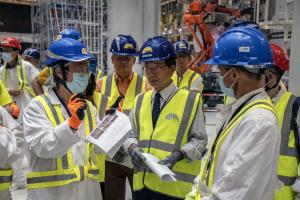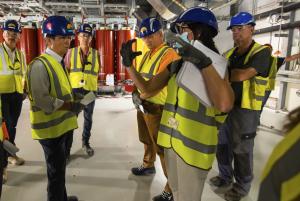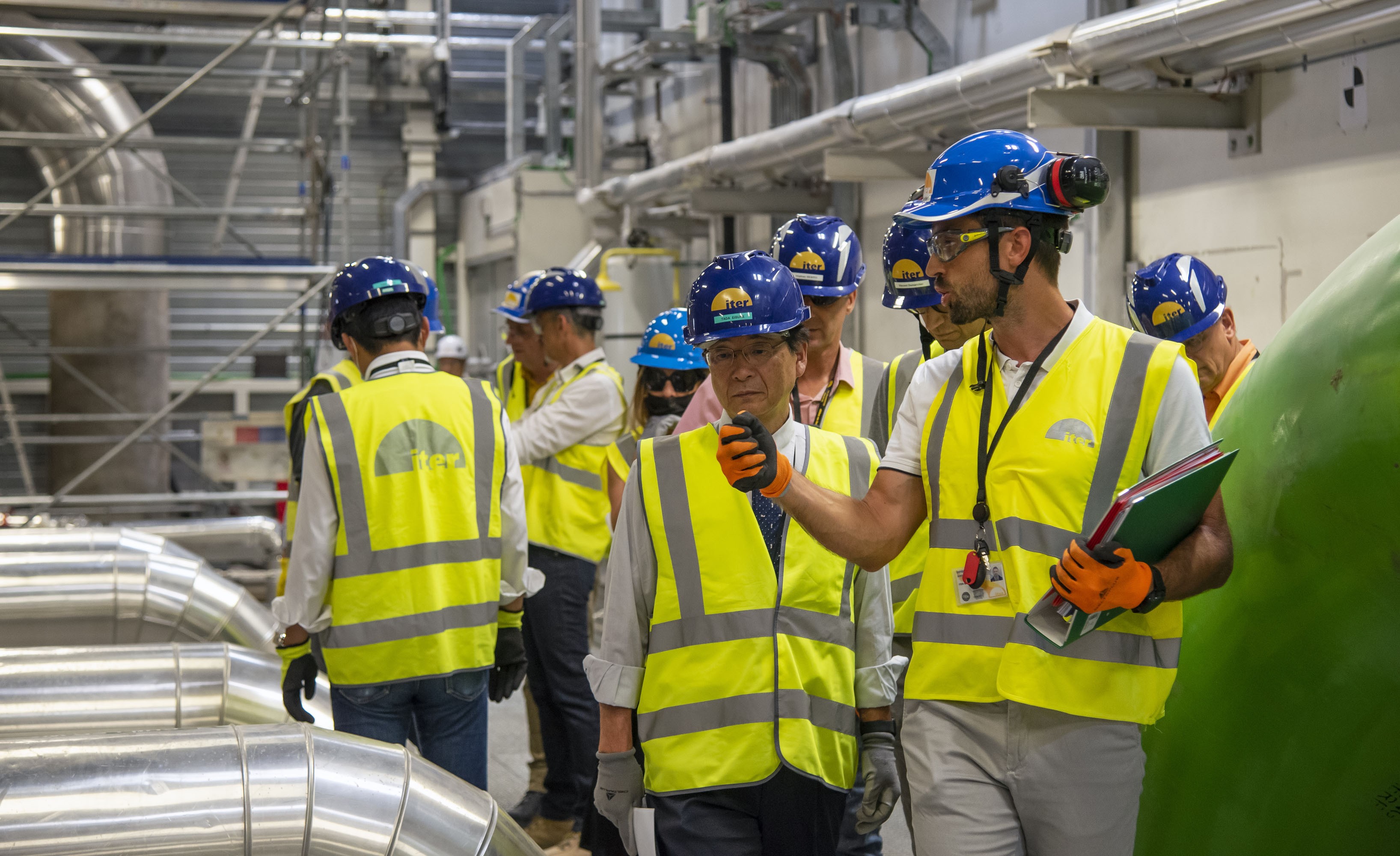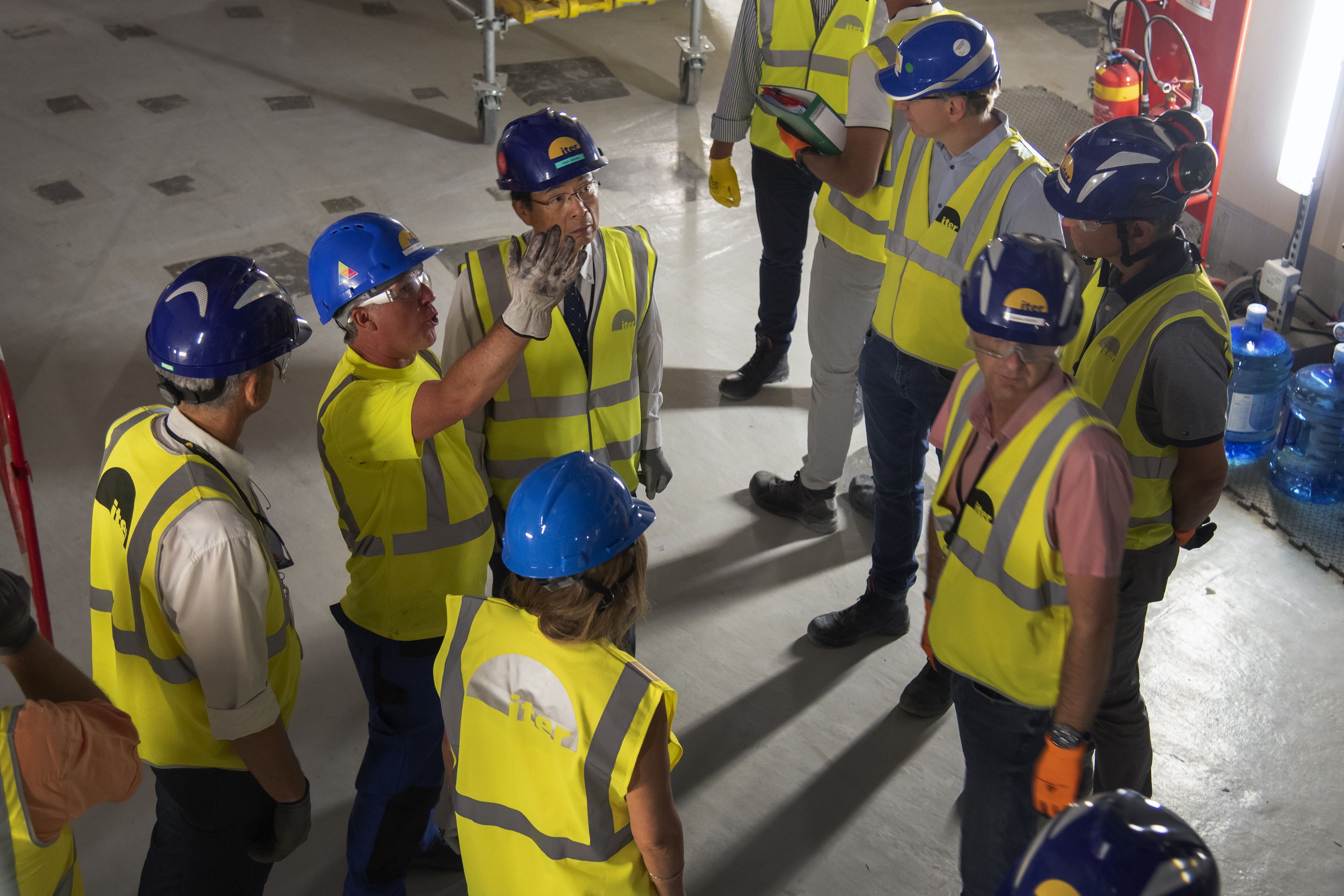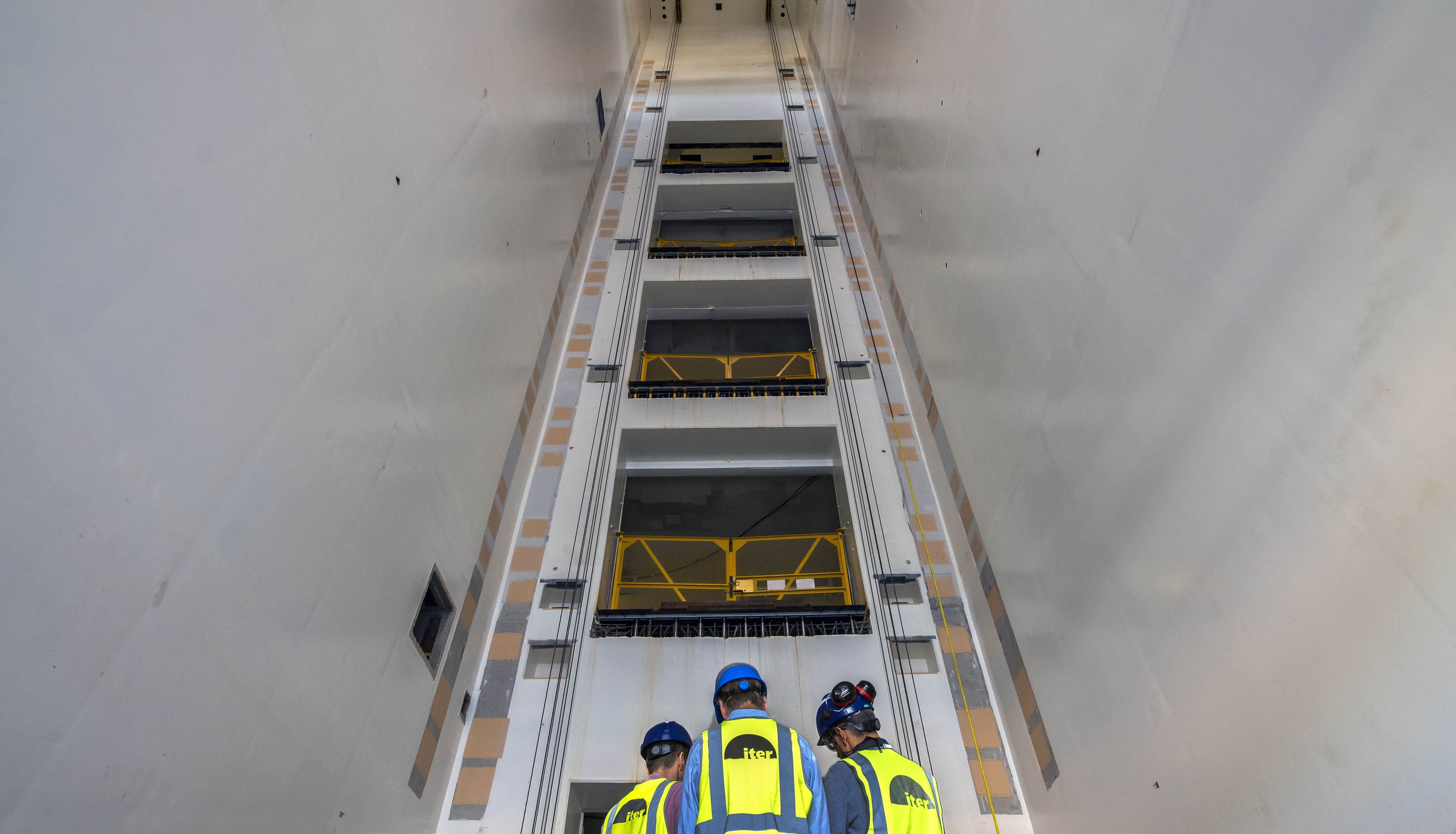Walking through issues and achievements
The ITER worksite covers 42 hectares, comprises 39 buildings, and accommodates a myriad of different interconnected and interdependent activities. As the project progresses and its complexity increases, the need for senior management to have a comprehensive perception of activities becomes more acute every day. Of course, there are procedures: managers receive reports and hold meetings, and they are alerted about issues and risks. Four times a week, the Domain Heads and the Chief Strategist meet with the Director-General and share the day's concerns. And whenever managers can free a slot in their overbooked agendas, they don their blue helmet and yellow vest to go out on site and check out issues for themselves. Organized monthly, the management site walkthrough brings all these individual pieces together—like listening to the whole orchestra in order to fine-tune every single instrument.
Presently, most of the issues discussed have to do with interfaces. As more and more equipment is installed and as the different networks extend out and ramify, the original 3D drawings and meticulously planned equipment sequences face a daily confrontation with reality. When piping or massive steel structures extend for hundreds of metres, a minute deviation at one end translates into an interfacing difficulty at the other. When factories cannot deliver in time because of tension in the market for steel or disruptions to international transport, installation sequences need to be reorganized and adjusted. Most often, when someone on the work site says "issue," the collective echo responds "under control."
"It is of prime importance to be here with the teams and acknowledge the difficulties they encounter," says Alain Bécoulet, Head of the Engineering Domain. "Although we are kept informed through regular meetings and established procedures like those regarding non-conformities, being here in the field is different—to me, it feels like I'm updating my data files. This walkthrough is a precious moment of communication with the people most directly concerned."
And the scientific challenge begins here, among the cranes and the scaffolding. Even at this stage, with operation scheduled in the second half of the decade, "it is very important to have a clear view of the work being performed on site," says Tim Luce, Head of the Science & Operation Domain. "It is important to properly plan and execute the commissioning of systems, of course. But also, the ability to achieve the project's objectives depends vitally on the quality of the workmanship and the decisions made in the course of the present phase."
A walkthrough of the ITER worksite does more than provide the comprehensive overview that is indispensable to senior management. It is also about experiencing, in person, the day-to-day challenges, frustrations, and also the determination of the teams. "What I saw today is how hard people work and how dedicated they are," said Eisuke Tada as the group was breaking up after the two-hour outing. "What I saw is an illustration of the 'one-team spirit' that permeates all those involved, whether ITER staff or subcontractors."

